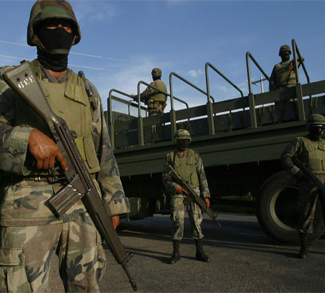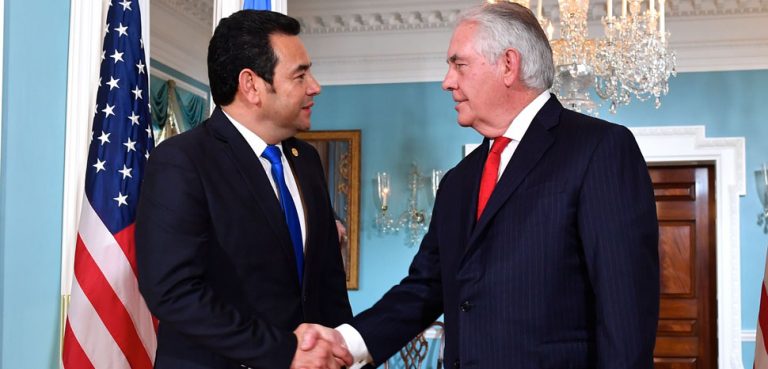Summary
Across Latin America, governments are hailing security gains against organized criminal groups. Yet in spite of more arrests, criminal networks are stronger and criminality just as pervasive, suggesting that another reality lies behind the numbers.
Analysis
In Rio de Janeiro, the low-income communities of Cantagalo and Pavão-Pavãozinho rest on a group of hills dividing the wealthy beach neighborhoods of Ipanema and Copacabana. Historically, these poor communities have been lucrative territory for the drug trade due to their proximity to wealthy consumers. Drug lords installed themselves in the communities decades ago and established themselves as the de facto law, earning up to R$300,000 per week and creating uncertainty and chaos for residents.
All this was supposed to change on December 23, 2009, when the city inaugurated what at the time was the fifth Pacifying Police Unit (UPP) . The UPPs are Brazil’s newest solution to the issue of urban security, which ranks among the country’s most pressing. Dealing with crime is a constant preoccupation for city officials looking to improve Rio’s image and for investors concerned with the state’s ability to contain violence. The elite units consist of police officers who are in theory trained as much in tactics as in diplomacy and are meant to reinforce the presence and commitment of the state government in communities where it had been lacking. Like other UPPs in Rio, the Cantagalo/Pavão-Pavãozinho UPP was supposed to completely rid the Cantagalo/Pavão-Pavãozinho area of drug traffickers.
In some ways, the program has been a success: Murder rates are down in many areas, and, during the first quarter of 2011, the number of arrests increased by 35 percent throughout the city. Housing prices are also up, having nearly tripled in neighborhoods such as Botafogo, where the first ever UPP was installed in the nearby low-income community of Santa Marta. Many people – tourists and middle-upper class Cariocas alike – feel safer. “The UPPs are freeing residents who have unfortunately seen the growth of a narco-trafficking dictatorship over the last two decades”, says Mário Sérgio de Brito Duarte, General Commander of the Military Police.
A false sense of security
Yet despite the UPP occupation and the official state response, drug trafficking groups still operate in the area. One former drug trafficker, who asked not to be named, told ISN Insights that instead of making life safer for residents, the UPPs have actually had the opposite effect; that the safety of some has come at the expense of the safety of others. “Before, the drug traffickers had a system of rules that everyone knew and followed. Now, it’s not so clear. When the police pass by everyone gets nervous and keeps quiet; there isn’t a clear notion of who is in control.” Other residents derisively call the UPP stations ‘Units for the Poor’ (Unidade para os Pobres), a play on the UPP acronym that suggests the UPPs are rather intended to repress residents and hide impoverished communities from public view.
The problem lies in the difference between what is reported and what is actually happening. Many of the reported UPP arrests are not of significant leaders but of vapores – slang for low-level operatives at the bottom of the command structure. Because of their greater exposure and the ease with which they can be charged for possession, vapores are among the easiest members of drug trafficking organizations to arrest. They can also be easily replaced and are relatively insignificant in the larger scheme of criminal operations.
Targeting vapores can be very useful in creating an image of effective policing and the impression that the drug trade is being undermined. Yet this public relations success does not coincide with reality; arresting only the minor players leaves the operational capacity and command structure of these organizations intact, and they continue to be a menace to the community.
The story of the UPPs in Rio de Janeiro hits on a common theme in Latin American security analysis – that of complacency in the face of superficially compelling statistics. While encouraging numbers may make residents feel safer, the notion that Rio’s criminal organizations do not exist, or are unable to operate due to police activity, is inaccurate.
This gap between public perception and reality is not confined to Rio and Brazil, but is a region-wide phenomenon, occurring in Colombia, Mexico, and other Central American countries where criminal organizations have taken hold. While Bogotá has been able to claim successes that the Mexican and Central American governments have not, criminal networks in all of these countries are deeply-rooted and not easily eradicated.
Suppressed – but not removed
This last point is perhaps nowhere truer than in Colombia, where improvements in public security are now being questioned in light of a resurgence in urban violence, attacks on oil installations and other infrastructure in the countryside, and reports of less visible repression, including the intimidation of vulnerable residents along the Pacific and Atlantic coasts. After the first phase of a largely successful campaign against FARC and right-wing paramilitary groups led to demonstrable security gains, Colombia, now led by the man who oversaw those gains, is seeing an uptick in violent crime.
The reason for the new violence is that, despite the improvements, the groups never really went away. Take, for example, one of the most heralded successes of joint US-Colombian operations: the Montes de María area in Cordoba and Sucre departments. The area is much safer today than it was five years ago. FARC no longer openly patrols the unpaved roads of the mountain hamlets dotting the countryside, and right-wing paramilitaries do not rule by terror as they once did. Yet the area is still crawling with the criminal elements that have long held influence in the region, and fear remains. In short, as with the UPPs in Rio, claims of success are partial and incomplete.
Largely, this is a story about the resilience of these criminal networks, many of which are international in scope. Operatives from Mexican cartels have been arrested in Australia. Criminal groups import methamphetamine from Southeast Asia, ship cocaine to West Africa, and sell it on the streets of Europe, to say nothing of their presence in the Western Hemisphere and within their own countries – especially Mexico and Colombia.
Another important source of resilience is the diversity of their illicit activities. Criminal organizations profit from more than just illegal drugs. Kidnapping, extortion, human trafficking, and the theft of natural resources are but a few of the other highly lucrative enterprises that bind the members of a network together. At a local level, criminal groups ‘tax’ utilities in poorer communities, where regulation is spotty. Where there is a means to earn money and wield power, criminal groups will take advantage of the network effect to profit and retain power. This makes their eradication extremely difficult.
While the complete eradication of these groups – maybe the only way to really guarantee security – can be neither quick nor easy, external pressures and political considerations demand instantaneous results, and the illusion of progress is all the more alluring when it can be broadcast across a hemisphere suffering from similar maladies.
Keeping up appearances
A common expression today in Brazil, para Inglês ver (roughly translated as ‘for the Englishman to see’), captures the essence of this idea of keeping up appearances in the presence of outsiders. It derives from the practice of showing English officials visiting Brazil between 1831 and 1888 that the trans-Atlantic slave trade had been outlawed. Under the auspices of visiting dignitaries, Brazilian slave traders would offer the appearance that the trade no longer existed, when in fact it was as rampant as ever.
Security programs in the Americas today are experiencing a modern day version of ‘para Inglês ver.’ The pressure to demonstrate security gains is high, and the number of observers is significant. International funding and political careers depend upon demonstrable success, which invites the misleading metrics that have characterized a number of security programs. Of course, it would be just as inaccurate to deny these programs any credit as to champion them as unequivocal successes, but the true answer lies somewhere in the elusive and unpopular middle.


![Honduran President Juan Orlando Hernandez signs the guest book during his visit to the Department of State, March 21, 2017. [State Department photo/Public Domain] Honduran President Juan Orlando Hernandez signs the guest book during his visit to the Department of State, March 21, 2017. [State Department photo/Public Domain]](https://www.geopoliticalmonitor.com/wp-content/uploads/2018/02/Honduran_President_Juan_Orlando_Hernandez_Signs_Guest_Book_at_the_State_Department_33420472842-768x369.jpg)
